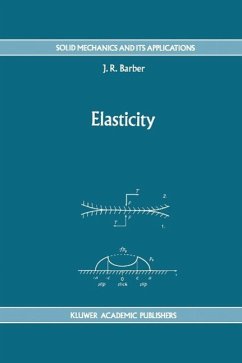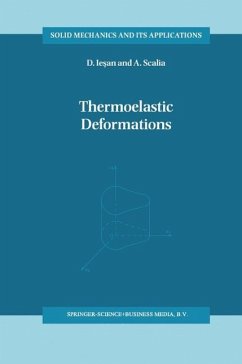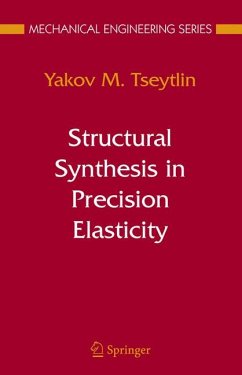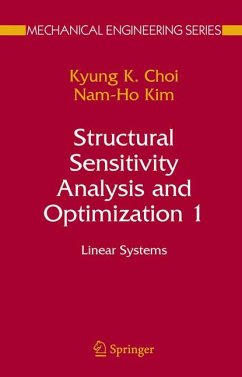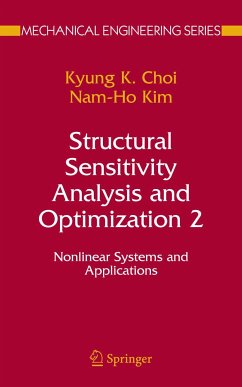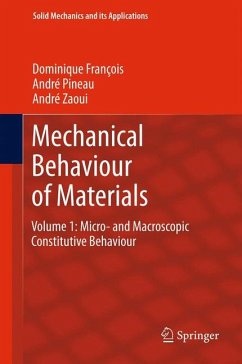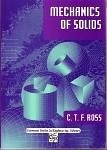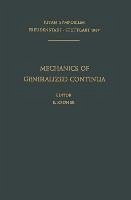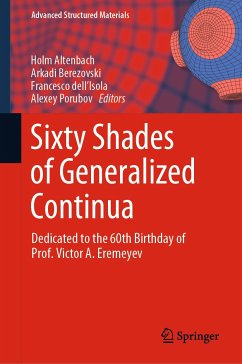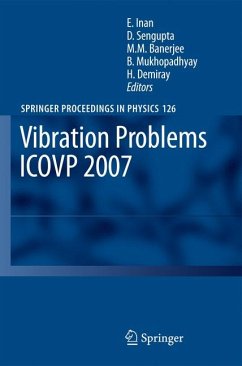
Thermoelastic Models of Continua (eBook, PDF)
Versandkostenfrei!
Sofort per Download lieferbar
112,95 €
inkl. MwSt.
Weitere Ausgaben:

PAYBACK Punkte
56 °P sammeln!
This volume is concerned with the basic problems of the theory of thermoelasticity for three models of continuous bodies: materials with voids, micropolar solids and nonsimple bodies. Beginning with the basic laws of thermodynamics, the theory of thermoelastic materials with voids is treated. Two subsequent chapters cover the analysis of the linear theory of micropolar thermoelastic bodies. The book concludes with a study of nonsimple thermoelastic materials, which are characterised by the inclusion of higher gradients of displacement in the basic postulates. Relevant examples and exercises wh...
This volume is concerned with the basic problems of the theory of thermoelasticity for three models of continuous bodies: materials with voids, micropolar solids and nonsimple bodies. Beginning with the basic laws of thermodynamics, the theory of thermoelastic materials with voids is treated. Two subsequent chapters cover the analysis of the linear theory of micropolar thermoelastic bodies. The book concludes with a study of nonsimple thermoelastic materials, which are characterised by the inclusion of higher gradients of displacement in the basic postulates. Relevant examples and exercises which illustrate the theory are given throughout the text. The book should be of interest to mathematicians and specialists working in the fields of elasticity, thermoelasticity, civil engineering and geophysics.
Dieser Download kann aus rechtlichen Gründen nur mit Rechnungsadresse in A, B, BG, CY, CZ, D, DK, EW, E, FIN, F, GR, HR, H, IRL, I, LT, L, LR, M, NL, PL, P, R, S, SLO, SK ausgeliefert werden.



